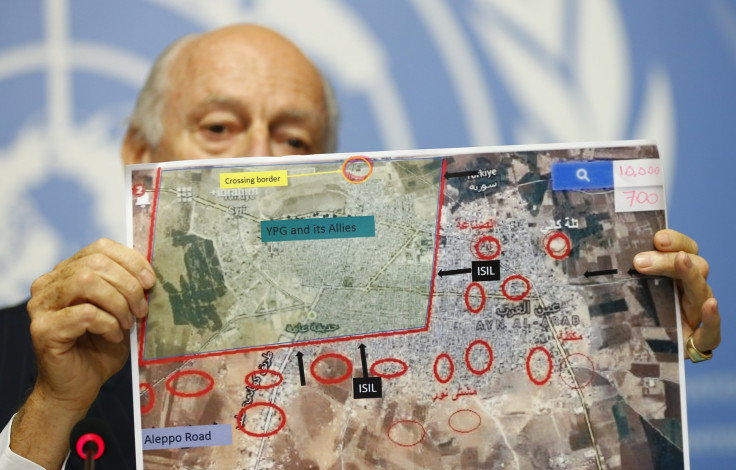With Anti-ISIS US Troops In Syria, What Is The Strategy To Win Back Raqqa From The Islamic State?

With talks about Syria's future unfolding in Vienna, the White House authorized Friday a small group of Special Operations troops to be deployed to the war-torn Middle East country, upping the ante in a ferocious four-year long conflict that has already attracted the attention of Iran and Russia. While the U.S military's strategy looks to improve on a year of coalition airstrikes that have so far failed to oust the Islamic State militant group, also known as ISIS or ISIL, from Syria, analysts said it will take a combination of two factors to attain success there: loosening ISIS' grip from key territories and negotiating with Russia and Iran, which both already have military leverage inside Syria.
"The U.S. is trying to help rebels take back the city of Raqqa and therefore dislodge the Islamic State from its headquarters. That would be a strategic blow; it would be a very visible sign of success and it would disrupt IS's activities right across Syria and Iraq," said Shashank Joshi, a senior research fellow and expert on the Middle East at the Royal United Services Institute, a London military think-tank.
While the U.S. has been advising the Iraqi military in a similar capacity since ISIS began taking large swathes of Syria and Iraq in June 2014, the new mission adds to the melting pot of countries and forces in the country. Russia began airstrikes against ISIS and Syrian rebel groups at the end of September in support of Assad, and it has recently put troops on the ground, all while Iranian proxies also operate in support of the Damascus regime and under instruction from the government in Tehran.
While deploying troops to Syria could be seen as a way to hit ISIS hard at its core, the troops will also likely act as a prelude to continued political discussions on Syria, said Alireza Nader, a senior international policy analyst with a focus on the Middle East at the Rand Corporation, a Washington, D.C., think tank.
"All sides are concerned that they should have enough military leverage going into the political discussions," said Nader. "The U.S. does need that clout if it wants to achieve some of its political and military objectives in the country, especially given the increased Russian and Iranian involvement."
The White House made the announcement Friday amid ongoing discussion in Vienna between U.S. Secretary of State John Kerry, Iran, Russia, Saudi Arabia and foreign ministers from more than 15 other countries, according to a Wall Street Journal report. While the exact details of those talks, which was set to cover the future of Syria's authoritarian leader and president Bashar Assad, are largely unknown, an Iranian source told Reuters that it supported a six-month transitional period and then democratic elections in the country.
Deploying troops in Syria would place American boots on the ground for the first time and concentrate on assisting Syrian rebels and Kurdish fighters in the north of the country, whose main aim will be not only to take back Raqqa but to defend it from what would be a brutal counterinsurgency from ISIS.
"Yes, the Islamic State is pushing in other places, but if you really want to weaken quickly and deliver a strategic blow, you hit them at their heart. And for that final push to really make this successful, you need to have a strong degree of coordination of air and ground forces, and that's where the Special Ops come in," said Joshi, of the Royal United Services Institute.
© Copyright IBTimes 2024. All rights reserved.





















